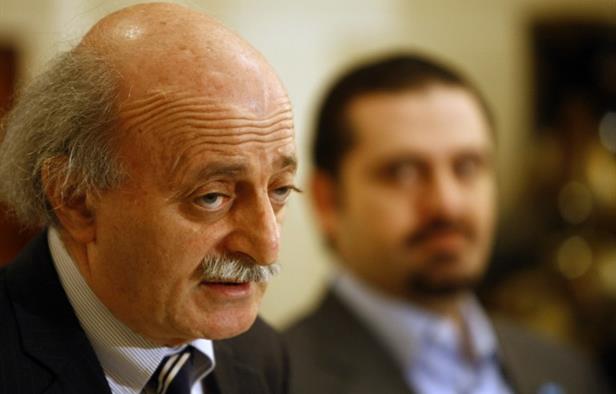 Disagreements re-surfaced among Lebanon’s political leaders over the privatization of state institutions, mainly those that incur huge treasury losses, such as electricity and water.
Disagreements re-surfaced among Lebanon’s political leaders over the privatization of state institutions, mainly those that incur huge treasury losses, such as electricity and water.
The head of the Progressive Socialist Party (PSP), former MP Walid Jumblatt, warned against “suspicious capitals seizing the public sector under the pretext of privatization, especially amid political chaos in Lebanon.”
In a tweet on Thursday, Jumblatt said it would be “shameful” that “arms dealers or other opportunists” control the public sector under the pretext of privatization, in light of the current political chaos.
PSP secretary-general Zafer Nasser said that resolving the economic crisis in Lebanon should begin with bold decisions and reforms in the structure of the state.
“Jumblatt knows that the problem of electricity is a major cause of the deficit, as well as squandering and corruption in other sectors,” he noted.
“We smell secret deals and agreements under the table under the title of reform,” he remarked, adding: “Selling the public sector to the private sector means that the interests of the Lebanese will be in the hands of people, and this complicates the problem and does not solve it.”
Financial and economic expert, Dr. Ghazi Wazneh, does not hide the existence of real fears of privatization, especially in electricity, water, and telecommunications.
In comments to Asharq Al-Awsat, he said that the International Monetary Fund (IMF) and the World Bank were asking Lebanon not rush with such a decision, because the country has no experience in privatization, which has shown its failure in some other countries.
Wazneh stressed the importance of public offerings, where the citizens are allowed to subscribe to electricity and telecommunications shares, “so that every citizen buys one share, and the share sold does not exceed 35 percent of the value of the company, and then no one becomes the decision-maker.”
“This proposal is mentioned in the paper submitted by Prime Minister Saad Hariri,” he said.
Dr. Charbel Kordahi, economic adviser to the Free Patriotic Movement (FPM), which headed by Foreign Minister Gebran Bassil, underlined the need to “distinguish between privatization, which means the sale of economic activity by the government to the private sector in full, and the partnership between the public and private sectors, which will allow the private sector to become a partner in profits and a shareholder of capital.”
Asharq Al-Awsat

Leave a Reply
You must be logged in to post a comment.